
Climate Science Policy Watch
Core Initiatives
1. PROMOTING SCIENTIFIC INTEGRITY & EXPOSING DISINFORMATION AND THE DENIAL OF CLIMATE SCIENCE
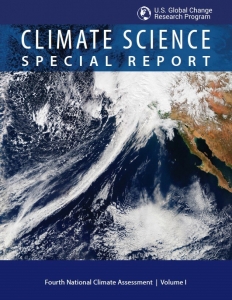 CSPW, a flagship Government Accountability Project’s Environmental Oversight program, has its roots in the exposure of government officials who censor or suppress critical information generated by federal climate scientists in order to serve a purpose other than the public good (see CSPW History). Some elected officials and political appointees have taken it upon themselves to abuse the power of their office to tamper with federal, peer-reviewed scientific reports by modifying or redacting content – not for purposes of clarity or accuracy – but for more pernicious reasons. It is well-documented that the US fossil fuel industries have orchestrated a decades-long campaign to manipulate public opinion and policymakers alike to inject doubt and confusion regarding the existential threat climate change presents; through a vast network of organizations and individuals, oil, gas, and coal interests have spun a web of deception we have dubbed the “global warming denial machine.” Coal, oil, and gas corporate money and power, greatly enhanced by the Citizens United court decision of 2010, has all but ensured that our carbon-intensive energy economy can continue, business-as-usual.
CSPW, a flagship Government Accountability Project’s Environmental Oversight program, has its roots in the exposure of government officials who censor or suppress critical information generated by federal climate scientists in order to serve a purpose other than the public good (see CSPW History). Some elected officials and political appointees have taken it upon themselves to abuse the power of their office to tamper with federal, peer-reviewed scientific reports by modifying or redacting content – not for purposes of clarity or accuracy – but for more pernicious reasons. It is well-documented that the US fossil fuel industries have orchestrated a decades-long campaign to manipulate public opinion and policymakers alike to inject doubt and confusion regarding the existential threat climate change presents; through a vast network of organizations and individuals, oil, gas, and coal interests have spun a web of deception we have dubbed the “global warming denial machine.” Coal, oil, and gas corporate money and power, greatly enhanced by the Citizens United court decision of 2010, has all but ensured that our carbon-intensive energy economy can continue, business-as-usual.
Government scientists working diligently to more accurately understand and earnestly convey all of the various ways that Earth’s climate system is disrupted as a consequence of escalating carbon dioxide and other greenhouse gas emissions – how communities everywhere face escalating risks as a result of massive flooding, prolonged droughts, coastal inundation, heat waves, extreme weather events, and so on – are often drowned out by a counter-message. “The science is too uncertain to warrant action” goes the manufactured missive: it is a deny-to-delay ploy first used by tobacco companies, one that intentionally exaggerates scientific uncertainty in order to stop or slow the adoption of public policies that would curtail carbon dioxide emissions and thus cut into corporate profits. Diabolically clever and surprisingly successful, this tactic of mass deception has warped public opinion, infected political discourse, damaged honest public policy debate, and instilled confusion and doubt in the psyche-at-large, just at a time when highly focused, reality-based, intelligent decision-making and swift action is needed the most in order to avert climate catastrophe.
This is neither hyperbole nor ideology: the science behind the global warming trend and all it implies is as solid as a confirmed medical diagnosis of carcinoma, and potentially just as deadly. In short, the array of climate change impacts predicted decades ago by scientists here and abroad are now occurring in real time, killing and injuring people and wildlife, destroying property and ecosystems, ruining natural resources, devastating neighborhoods and communities, and worsening with time. Our inevitable transition to a much less carbon-intensive energy economy has been delayed, as has US national preparedness for climate impacts, which in too many places gets a failing grade. Overall, with few exceptions, we are not ready for a climate-disrupted future. Too often, those we have elected to govern and protect us from actual threats have been corrupted and co-opted into a belief system regarding climate change that puts fiction over fact, short-term profit for the few over longer-term prosperity for all, expedience over good governance, denial over discovery and disclosure. For too many in power, climate science is no longer perceived as generating important and useful information but as a belief one can choose to embrace or reject, or even an idea that can be banned legislatively. Florida Governor Rick Scott forbade his staff from uttering the words themselves or considering climate change in their work; North Carolina literally banned the use of scientific studies on sea level rise after evidence showing the state’s coastal areas would be adversely affected.
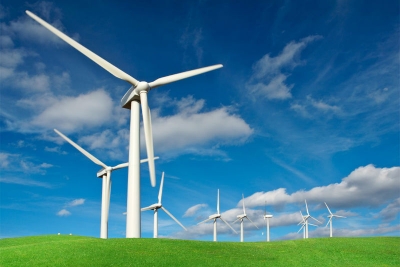 The Trump Administration is populated with leaders who have chosen to reject the notion that climate change is real, and that it poses real threats to real people in real places. Government communications regarding climate science and impacts – via websites, conferences, presentations, media interviews, writings and publications, and so on – are now in the cross-hairs of White House cabinet officials. We are already witnessing specific acts of censorship and information suppression. Key pages on the official websites of the State Department and the Environmental Protection Agency have already been altered or removed altogether. CSPW has responded to this new threat to open and transparent government by joining and actively participating in a newly developing network of watchdog groups and individuals, calling attention to censorship through our blog and other means, and by readying a legal team for filing motions and using the judicial system to keep our federal government honest and law-abiding. For example, the Global Change Research Act of 1990 requires agency participants in the US Global Change Research Program to report periodically to Congress and the public on scientific assessments by region and sector of climate change impacts. The George W. Bush Administration’s attempt to suppress the National Climate Assessment of 2000, to water down scientific conclusions made by federal scientists without basis, and to significantly delay additional climate impacts assessments are examples of illegal and/or highly unethical activities that we helped to expose and correct through media attention and court action. Announced in the Washington Post and released in the beginning of 2017, CSPW’s latest White Paper addressed this critical issue. CSPW, through Government Accountability Project, is now strategically positioned to galvanize significant change and take legal action necessary to ensure compliance with the GCRA and other environmental protection laws, and to represent whistleblowers who come forward and disclose instances in which components of the Executive branch fail to comply with Congressional mandates.
The Trump Administration is populated with leaders who have chosen to reject the notion that climate change is real, and that it poses real threats to real people in real places. Government communications regarding climate science and impacts – via websites, conferences, presentations, media interviews, writings and publications, and so on – are now in the cross-hairs of White House cabinet officials. We are already witnessing specific acts of censorship and information suppression. Key pages on the official websites of the State Department and the Environmental Protection Agency have already been altered or removed altogether. CSPW has responded to this new threat to open and transparent government by joining and actively participating in a newly developing network of watchdog groups and individuals, calling attention to censorship through our blog and other means, and by readying a legal team for filing motions and using the judicial system to keep our federal government honest and law-abiding. For example, the Global Change Research Act of 1990 requires agency participants in the US Global Change Research Program to report periodically to Congress and the public on scientific assessments by region and sector of climate change impacts. The George W. Bush Administration’s attempt to suppress the National Climate Assessment of 2000, to water down scientific conclusions made by federal scientists without basis, and to significantly delay additional climate impacts assessments are examples of illegal and/or highly unethical activities that we helped to expose and correct through media attention and court action. Announced in the Washington Post and released in the beginning of 2017, CSPW’s latest White Paper addressed this critical issue. CSPW, through Government Accountability Project, is now strategically positioned to galvanize significant change and take legal action necessary to ensure compliance with the GCRA and other environmental protection laws, and to represent whistleblowers who come forward and disclose instances in which components of the Executive branch fail to comply with Congressional mandates.
CSPW is also deeply concerned about the tendency of government civil service employees to self-censor, to operate in a fear-based manner and filter their own communications and activities to avoid a perceived future threat, such as job loss, demotion, or programmatic budget cuts. Self-censorship is already occurring: for example, the Centers for Disease Control canceled a conference on the nexus between climate and public health scheduled for February of this year, in anticipation of interference by the Trump White House. The end result of self-censorship is the same as externally-imposed censorship: the American public loses out on receiving important information and guidance, on work products that are taxpayer-funded and presumably conducted for the public good. By calling out each and every instance of politically-motivated censorship, suppression, and key examples of self-censorship in response to an environment of repression, CSPW is and will continue to be on the front lines of the fight to protect and promote integrity in the use of climate science in government, our core mission and the Government Accountability Project’s organizational identity.
2. WATCHDOGGING FEDERAL GOVERNMENT CLIMATE PROGRAMS & LEGISLATION
Furthering our understanding of how human activities are affecting weather patterns, climate, hydrological cycles, and the ecological systems that support and sustain all life on Earth has traditionally and globally been viewed as a valuable and essential endeavor that transcends politics and short-term aspirations. The United States of America leads the world in climate science and global change research under the US Global Change Research Program (USGCRP) to develop and coordinate “a comprehensive and integrated United States research program which will assist the Nation and the world to understand, assess, predict, and respond to human-induced and natural processes of global change.” Established in 1989 by President George H.W. Bush under a presidential initiative with strong bipartisan support, the US Congress codified this interdisciplinary, interagency program by passing the Global Change Research Act of 1990 (GCRA), which mandates a variety of requirements that must be met on the timelines Congress established. In plainer terms, under US law, the executive branch is required to conduct certain climate change science research, assessment, and reporting activities, regardless of who occupies the White House or what the President’s and the current administration’s policy preferences and priorities may be. Over a dozen agencies and departments operate climate programs that fall under the USGCRP, most notably, NASA, NOAA, NSF, USGS, DOE, and others. Facilitated by a National Coordination Office, the program is steered by the Subcommittee on Global Change Research under the Committee on Environment, Natural Resources and Sustainability, overseen by the Executive Office of the President.
However, now well into the Trump Administration, the USGCRP is without a White House liaison and, presumably, without any champions in the White House, especially given that President Trump has not yet appointed a presidential Science Advisor to head the Office of Science and Technology Policy. Further, neither President Trump nor Vice President Pence support the notion that climate science is a national priority, or perhaps even has a basis in reality, as evidenced by President Trump’s stated belief that climate change is a “hoax.” Further, plans to impose deep budget cuts into discretionary programs to fund a military build-up has climate science program managers concerned that key research and assessment activities will be shut down.
 Our nation’s energy systems, agriculture and food production, water resources, infrastructure, and nearly all private commercial business enterprises are vulnerable to abnormal weather patterns and climate conditions that, as a result of a steady, multi-decadal global warming trend, are damaging the US economy and imposing hardships to communities everywhere. Most Americans in communities across the country now accept that climate change is no longer an abstract, theoretical threat to society: they clearly see that dangerous disruptions to our climate system are occurring now, in real time, to real people, in real places. The fact that climate change has become politicized in the US and that more than a handful of elected officials have opted not to “believe in” climate change, as if it were a religion, does not alter the reality: the seas are continuing to rise, massive floods are causing death and destruction, prolonged droughts are compromising crops and forests, severe storms are causing emergency declarations and devastating families and neighborhoods. A key component of the USGCRP is the periodic national assessment of climate change impacts required by the GCRA; a comprehensive report is due to the Congress and the public every four years. Compliance with this legal mandate has been inconsistent across presidencies; the George W. Bush Administration even buried the 2000 national assessment to keep the American people from drawing connections between fossil fuel use and damaging climate impacts (see CSPW’s latest White Paper).
Our nation’s energy systems, agriculture and food production, water resources, infrastructure, and nearly all private commercial business enterprises are vulnerable to abnormal weather patterns and climate conditions that, as a result of a steady, multi-decadal global warming trend, are damaging the US economy and imposing hardships to communities everywhere. Most Americans in communities across the country now accept that climate change is no longer an abstract, theoretical threat to society: they clearly see that dangerous disruptions to our climate system are occurring now, in real time, to real people, in real places. The fact that climate change has become politicized in the US and that more than a handful of elected officials have opted not to “believe in” climate change, as if it were a religion, does not alter the reality: the seas are continuing to rise, massive floods are causing death and destruction, prolonged droughts are compromising crops and forests, severe storms are causing emergency declarations and devastating families and neighborhoods. A key component of the USGCRP is the periodic national assessment of climate change impacts required by the GCRA; a comprehensive report is due to the Congress and the public every four years. Compliance with this legal mandate has been inconsistent across presidencies; the George W. Bush Administration even buried the 2000 national assessment to keep the American people from drawing connections between fossil fuel use and damaging climate impacts (see CSPW’s latest White Paper).
Climate Science & Policy Watch continues to carry out its original mission by watch-dogging the federal climate science programs, in order to call attention to instances of political tampering and to protect climate scientists from having their important work censored, suppressed, or otherwise compromised. Already, we are concerned to see that the Trump Administration has been altering and deleting government website content having to do with climate change, and beginning to roll back and unwind climate change programs and policies undertaken by the Obama Administration. We are teaming with other organizations to enhance our watchdog capabilities, organizations such as the Union of Concerned Scientists and the Environmental Data and Governance Initiative. CSPW is also on the lookout for instances of self-censorship, a common phenomenon that occurs when federal civil servants operate in fear-based environment in which worry that an activity or project will catch the negative attention of White House officials is avoided by simply avoiding the activity in question. Government Accountability Project has warned about the power of this “chilling effect” on public servants and would-be whistleblowers for decades. The most notable act of self-censorship so far under this administration is the decision by the Center for Disease Control to cancel a large conference scheduled for February 2017 to explore the links between climate change and human health. “Anticipatory surrender” is one way federal employees choose to protect themselves and their programs from attack, but is also harmful in that it deprives the taxpayer of the fruits of federal research.
 Indiscriminate budget cuts pose another large threat to a well-functioning climate science research program; CSPW will be keeping a close eye on the budget process as appropriations bills make their way through Congress. CSPW will also be on the lookout for new legislative initiatives that are harmful to our climate science capabilities, such as proposals put forth by Rep. Lamar Smith, Chair of the House Science Committee, and others. Lastly, CSPW will be working on a project to assess the health and well-being of the USGCRP under the Trump Administration and how to build a stronger constituency that will go to bat for climate science by articulating the value and importance of these research and assessment activities to Members of Congress. In the fall of 2017 we will be producing a White Paper on this topic.
Indiscriminate budget cuts pose another large threat to a well-functioning climate science research program; CSPW will be keeping a close eye on the budget process as appropriations bills make their way through Congress. CSPW will also be on the lookout for new legislative initiatives that are harmful to our climate science capabilities, such as proposals put forth by Rep. Lamar Smith, Chair of the House Science Committee, and others. Lastly, CSPW will be working on a project to assess the health and well-being of the USGCRP under the Trump Administration and how to build a stronger constituency that will go to bat for climate science by articulating the value and importance of these research and assessment activities to Members of Congress. In the fall of 2017 we will be producing a White Paper on this topic.
3. INVESTIGATING THE ROLE OF BIG OIL IN THWARTING SOLUTIONS TO THE CLIMATE CRISIS
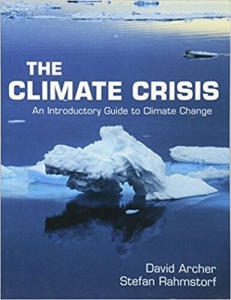 CSPW is investigating Big Oil, in general, and the Exxon Mobil Corporation, in particular, for the role they have played in obstructing the adoption of public policies for addressing the climate change threat by engaging in a massive, decades-long disinformation and denial campaign, akin to the public deception campaign lodged by the tobacco industry to deny the link between smoking and lung cancer. ExxonMobil is under criminal investigation by at least two state Attorneys General and possibly the US Securities and Exchange Commission (SEC) for potentially under-reporting the risks to its operations associated with climate change impacts to the point that it has committed securities fraud. The work CSPW is doing parallels these investigations and feeds into a growing national movement that seeks to hold fossil fuel industry players, as well as elected officials, accountable for a systematic failure to take positive action to cut carbon emissions and ameliorate the existential threat climate change poses. It also feeds into a potentially game-changing lawsuit filed by 21 youth against the President of the United States and key members of the Executive branch demanding meaningful climate change remedies. Neglecting to leave a habitable world for our children, their children, and future generations is a failure of epic proportions: the energy companies responsible for deliberately contributing to this malicious neglect should be held accountable.
CSPW is investigating Big Oil, in general, and the Exxon Mobil Corporation, in particular, for the role they have played in obstructing the adoption of public policies for addressing the climate change threat by engaging in a massive, decades-long disinformation and denial campaign, akin to the public deception campaign lodged by the tobacco industry to deny the link between smoking and lung cancer. ExxonMobil is under criminal investigation by at least two state Attorneys General and possibly the US Securities and Exchange Commission (SEC) for potentially under-reporting the risks to its operations associated with climate change impacts to the point that it has committed securities fraud. The work CSPW is doing parallels these investigations and feeds into a growing national movement that seeks to hold fossil fuel industry players, as well as elected officials, accountable for a systematic failure to take positive action to cut carbon emissions and ameliorate the existential threat climate change poses. It also feeds into a potentially game-changing lawsuit filed by 21 youth against the President of the United States and key members of the Executive branch demanding meaningful climate change remedies. Neglecting to leave a habitable world for our children, their children, and future generations is a failure of epic proportions: the energy companies responsible for deliberately contributing to this malicious neglect should be held accountable.
To be fair, fossil fuels enabled the US Industrial Revolution and have fueled economic growth ever since, drastically improving our quality of life by allowing for heating, cooling, lighting, ground and air transport, and the power needed to run a vast array of appliances, instruments, computing and communications technologies, devices and gadgets. A world without fossil fuels is nearly unimaginable: yet, imagine it we must. Once humankind gained sufficient knowledge – via extensive, international scientific investigation – that byproducts of fossil fuel combustion (namely, emissions of carbon dioxide, methane, and other greenhouse gases) accumulate in Earth’s atmosphere and cause global warming that disrupts Earth’s climate system in ways that are deadly and destructive, it was at this point in human history that it became incumbent on us, as a species, to reduce atmospheric carbon loading by aggressively pursuing an alternative energy future. This is the position of CSPW, but more importantly, it is and has been the position of US Presidents, a vast number of Members of the US Congress, and leaders of the majority of nations across the globe.
Pursuing an energy economy dominated by high-efficiency and zero- and low-carbon energy systems – e.g., wind, solar, biomass, geothermal, and small hydropower – has been slowed and impeded by entrenched fossil energy industries intent on maximizing production and profit, and maintaining and expanding market share, regardless of the cost to society of our continued dependence on oil, coal, and natural gas. Since it is not economically or practically feasible to capture or contain CO2 at the tailpipe or the smokestack, we must increase our reliance on less-polluting renewable energy systems that are now technologically mature and increasingly competitive with most applications of fossil fuels. Yet, despite rapid renewable market growth in the US and elsewhere, significant obstacles remain, obstacles that could be remedied by changes in public policy. Removing the billions of dollars in government subsidies to the oil and gas industry, amending the tax code to level the playing field by being more favorable to capital-intensive renewable energy systems, and passing a nationwide cap-and-trade regime for carbon dioxide emissions are just a few examples of climate-friendly public policies that the fossil industries have fought tooth and nail against. Contrary to typical fossil industry rhetoric, it is lack of political willpower, not lack of technology or know-how, that has bound us to an outdated, business-as-usual energy economy that is unsustainable and incompatible with the natural systems on which our very lives depend.
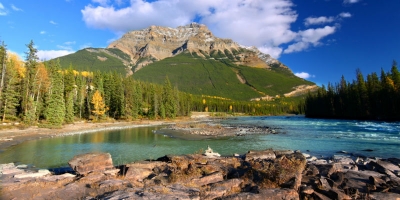 Deliberately deceiving the public and policymakers regarding the level of scientific certainty regarding the climate change threat has been the preferred modus operandi of major fossil fuel industry players for three decades: when the climate change problem became the proverbial writing on the wall, King Coal colluded with Big Oil to confuse the American people regarding the serious nature of the risk and scientists’ collective understanding of it, in order to confound support for new laws and regulations that would curtail CO2 and thus cut into corporate revenue. Rather than embrace the hard truth of climate change, energy executives made the strategic decision to attack the science and even the scientists themselves by discrediting their work and impugning their reputations. Despite the fact that major oil and gas companies like the Exxon Corporation had themselves engaged in robust research activities to better understand the role of rising carbon dioxide levels in the atmosphere in the 1960s and 1970s, by the time the 1980s rolled around, they were disparaging consensus science rather than meaningfully contributing to it. We call this well-orchestrated campaign of mass-deception the “global warming denial machine.” Sowing doubt and confusion in the public mind regarding the link between coal-fired power plants or gasoline-powered vehicles, and potentially devastating climate change impacts affecting real people in real places, was taken from the tobacco industry playbook written by executives who buried evidence that smoking causes lung cancer. Moreover, the very agents of climate denial are many of the same people who had worked to keep the public and policymakers in the dark regarding the cigarette-cancer connection.
Deliberately deceiving the public and policymakers regarding the level of scientific certainty regarding the climate change threat has been the preferred modus operandi of major fossil fuel industry players for three decades: when the climate change problem became the proverbial writing on the wall, King Coal colluded with Big Oil to confuse the American people regarding the serious nature of the risk and scientists’ collective understanding of it, in order to confound support for new laws and regulations that would curtail CO2 and thus cut into corporate revenue. Rather than embrace the hard truth of climate change, energy executives made the strategic decision to attack the science and even the scientists themselves by discrediting their work and impugning their reputations. Despite the fact that major oil and gas companies like the Exxon Corporation had themselves engaged in robust research activities to better understand the role of rising carbon dioxide levels in the atmosphere in the 1960s and 1970s, by the time the 1980s rolled around, they were disparaging consensus science rather than meaningfully contributing to it. We call this well-orchestrated campaign of mass-deception the “global warming denial machine.” Sowing doubt and confusion in the public mind regarding the link between coal-fired power plants or gasoline-powered vehicles, and potentially devastating climate change impacts affecting real people in real places, was taken from the tobacco industry playbook written by executives who buried evidence that smoking causes lung cancer. Moreover, the very agents of climate denial are many of the same people who had worked to keep the public and policymakers in the dark regarding the cigarette-cancer connection.
CSPW’s investigation includes analyzing corporate financial statements to shareholders and the SEC, educating potential oil industry whistleblowers on their legal rights as truth-tellers, and working collaboratively with other organizations also involved in this work: our ultimate objective is to help stop and shut down the global warming denial machine, once and for all.
4. KNOW YOUR RIGHTS CAMPAIGNS & PUBLIC INTEREST INVESTIGATIONS
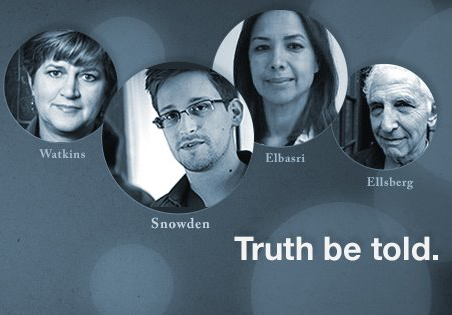 The Government Accountability Project conducts Know Your Rights Campaigns (KYRC) around issues and problems in society that are being mismanaged and are ripe for whistleblowers to come forward and expose the truth. A complex, rich set of laws and regulations at the federal and state level have been adopted over time that protect whistleblowers from retaliation and allow them to continue safely with their careers if they so choose. Government Accountability Project educates potential whistleblowers and the public about their rights in plain terms – through blog posts on our website and other means – about what to expect and how to conduct oneself when considering exposing a wrongdoing and going public. Our tested Know Your Rights methodology is sophisticated and effective, having been honed for forty years.
The Government Accountability Project conducts Know Your Rights Campaigns (KYRC) around issues and problems in society that are being mismanaged and are ripe for whistleblowers to come forward and expose the truth. A complex, rich set of laws and regulations at the federal and state level have been adopted over time that protect whistleblowers from retaliation and allow them to continue safely with their careers if they so choose. Government Accountability Project educates potential whistleblowers and the public about their rights in plain terms – through blog posts on our website and other means – about what to expect and how to conduct oneself when considering exposing a wrongdoing and going public. Our tested Know Your Rights methodology is sophisticated and effective, having been honed for forty years.
- Gulf Coast Deepwater Horizon Oil Spill and Corexit: Insiders within core aspects of the fossil extraction industry know why certain practices are perilous for the environment in ways that must be exposed and brought to public attention. One of our most successful Know Your Rights Campaigns was directed toward workers who helped to clean up the Gulf Coast after the BP Deepwater Horizon oil spill in 2010. Over 40 whistleblowers have come forward so far to disclose serious health effects from exposure to the dispersant Corexit, health effects that represent a major public health threat, and the massive damage to the marine environment.
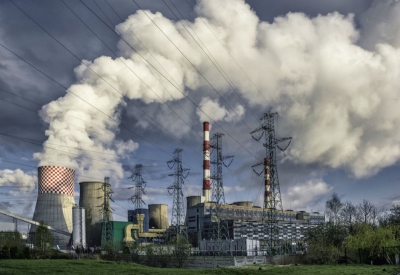 Oil Industry Culpability in the Global Warming Denial Machine — Big Oil Leaks: We also target KYRC’s towards federal, state and corporate employees who witness wrongdoing associated with climate change. Government Accountability Project program Climate Science & Policy Watch’s (CSPW) most active KYRC in 2017, “Big Oil Leaks,” is directed at the Exxon Mobil Corporation and other major oil and gas companies who have engaged in the decades-long attempt to manipulate public opinion and thwart public policymaking addressing the climate change threat by putting a cap on carbon dioxide emissions. CSPW is now working with strategic partners to conduct education and outreach in key geographic areas and targeted towards key demographics.
Oil Industry Culpability in the Global Warming Denial Machine — Big Oil Leaks: We also target KYRC’s towards federal, state and corporate employees who witness wrongdoing associated with climate change. Government Accountability Project program Climate Science & Policy Watch’s (CSPW) most active KYRC in 2017, “Big Oil Leaks,” is directed at the Exxon Mobil Corporation and other major oil and gas companies who have engaged in the decades-long attempt to manipulate public opinion and thwart public policymaking addressing the climate change threat by putting a cap on carbon dioxide emissions. CSPW is now working with strategic partners to conduct education and outreach in key geographic areas and targeted towards key demographics.- CSPW Fossil Extraction KYRCs: These CSPW KYRCs are similarly targeted at federal, state and corporate employees who know about wrongdoing associated with climate change concerns and regarding regulatory policy development and implementation, research, or energy industry practices. We have already launched and are seeking to expand two ongoing targeted public education investigations: one focused on educating workers about their rights to blow the whistle while highlighting the dangers of the fossil extraction process and oil and gas transport by rail and pipeline; and the other to educate workers about their rights while highlighting the environmental dangers of fracking, raising awareness on the issue and launching a broad public interest investigation into the practice.
5. ENSURING CLIMATE CHANGE IS INCLUDED IN NATIONAL ENERGY POLICY & PLANNING
The United States does not have, and, in reality, has never had, a comprehensive national energy policy that has been deliberated as a whole by the American people. Rather, the US has a messy patchwork of individual policy decisions made over a period of more than a hundred years, many of which were greatly influenced by rich and powerful energy companies. Moreover, US energy policy as it stands today is nearly devoid of consideration of the climate change threat.
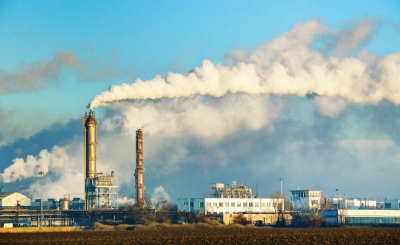 Major energy policy acts have been passed and signed into law in 1992, 2005, and 2007. The Energy Policy Act of 1992 has no fewer than 27 titles and includes some provisions to promote energy conservation and renewable energy. The Energy Policy Act of 2005 threw bones to all energy sources and has been criticized for providing generous subsidies to the oil and nuclear industries. The stated purpose of the Energy Independence and Security Act of 2007 is “to move the United States toward greater energy independence and security, to increase the production of clean renewable fuels, to protect consumers, to increase the efficiency of products, buildings, and vehicles, to promote research on and deploy greenhouse gas capture and storage options, and to improve the energy performance of the Federal Government, and for other purposes.” While the law includes provisions for increasing energy efficiency in the buildings sector and for appliances, for increasing fuel economy standards for cars and trucks, and for establishing a renewable energy fuel standard for biofuels, the bill that passed into law failed to include provisions passed by the House that would have significantly cut federal subsidies to the oil and gas industry; the Republican-controlled Senate rejected these provisions. Though not exclusively an energy bill, the American Recovery and Reinvestment Act of 2009 provided for more than four billion dollars in federal tax credits to homeowners for energy efficiency improvements, authorized additional renewable energy and efficiency research and development, and called for reductions in diesel engine emissions. Lastly, what would have represented the most recent, comprehensive regulatory scheme for addressing carbon dioxide emissions from US power plants and thus a key component of US energy policy, the Clean Power Plan developed by the US Environmental Protection Agency under the authority of the Clean Air Act, was mired down by legal challenges under the Obama Administration and has been completely abandoned by the Trump Administration.
Major energy policy acts have been passed and signed into law in 1992, 2005, and 2007. The Energy Policy Act of 1992 has no fewer than 27 titles and includes some provisions to promote energy conservation and renewable energy. The Energy Policy Act of 2005 threw bones to all energy sources and has been criticized for providing generous subsidies to the oil and nuclear industries. The stated purpose of the Energy Independence and Security Act of 2007 is “to move the United States toward greater energy independence and security, to increase the production of clean renewable fuels, to protect consumers, to increase the efficiency of products, buildings, and vehicles, to promote research on and deploy greenhouse gas capture and storage options, and to improve the energy performance of the Federal Government, and for other purposes.” While the law includes provisions for increasing energy efficiency in the buildings sector and for appliances, for increasing fuel economy standards for cars and trucks, and for establishing a renewable energy fuel standard for biofuels, the bill that passed into law failed to include provisions passed by the House that would have significantly cut federal subsidies to the oil and gas industry; the Republican-controlled Senate rejected these provisions. Though not exclusively an energy bill, the American Recovery and Reinvestment Act of 2009 provided for more than four billion dollars in federal tax credits to homeowners for energy efficiency improvements, authorized additional renewable energy and efficiency research and development, and called for reductions in diesel engine emissions. Lastly, what would have represented the most recent, comprehensive regulatory scheme for addressing carbon dioxide emissions from US power plants and thus a key component of US energy policy, the Clean Power Plan developed by the US Environmental Protection Agency under the authority of the Clean Air Act, was mired down by legal challenges under the Obama Administration and has been completely abandoned by the Trump Administration.
 One of CSPW’s complaints about climate change policy under President Barack Obama is that his preferred “all-of-the-above” approach to the nation’s energy mix did not in any way, shape or form reflect the urgency of the climate threat, even as articulated by the President himself on multiple occasions. In his first year in office, President Obama committed to do all he could to reduce US greenhouse gas emissions by about 17 percent below 2005 levels, by the year 2020. The President’s Climate Action Plan released in 2013 reported partial progress toward this goal and set out an ambitious set of policies and programs for promoting clean energy and improving our infrastructure and assisting communities across the nation to be more climate change-resilient. While not all the elements in the Climate Action Plan were achieved, and President Obama was limited in what he could do because he could not rely on Congress to pass climate-friendly legislation at any time throughout his two-term presidency, there were several notable achievements, the most notable being his refusal to allow the Keystone Pipeline to go forward as planned. The environmental community was actively opposed to this pipeline, citing the tendency of pipelines to leak and pollute large areas of land and water, and the carbon emissions associated with the oil to be transported by the pipeline.
One of CSPW’s complaints about climate change policy under President Barack Obama is that his preferred “all-of-the-above” approach to the nation’s energy mix did not in any way, shape or form reflect the urgency of the climate threat, even as articulated by the President himself on multiple occasions. In his first year in office, President Obama committed to do all he could to reduce US greenhouse gas emissions by about 17 percent below 2005 levels, by the year 2020. The President’s Climate Action Plan released in 2013 reported partial progress toward this goal and set out an ambitious set of policies and programs for promoting clean energy and improving our infrastructure and assisting communities across the nation to be more climate change-resilient. While not all the elements in the Climate Action Plan were achieved, and President Obama was limited in what he could do because he could not rely on Congress to pass climate-friendly legislation at any time throughout his two-term presidency, there were several notable achievements, the most notable being his refusal to allow the Keystone Pipeline to go forward as planned. The environmental community was actively opposed to this pipeline, citing the tendency of pipelines to leak and pollute large areas of land and water, and the carbon emissions associated with the oil to be transported by the pipeline.
Neither President Trump nor Vice President Pence have expressed a viewpoint any other than dismissal of climate change as a problem or even a real phenomenon (like Senator Jim Inhofe (R-OK), Donald Trump has called climate change a “hoax”). Rollbacks of President Obama’s climate initiatives have been promised on more than one occasion. However, a good analysis published by Mother Jones indicates that doing so may be a lot more difficult than Trump thinks. For example, even though Trump has vowed to bring back coal mining jobs, the coal extraction industry is on its last breaths, primarily as a result of energy market forces.
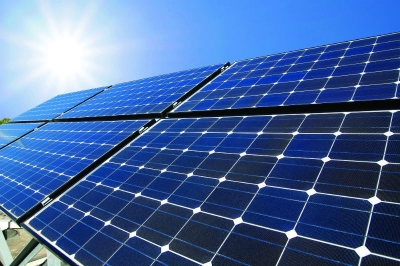 It is not clear to us what will become of the Quadrennial Energy Review (QER) – a major strategic planning exercise to develop government policy for the next generation of energy infrastructure – under the Trump Administration. One of CSPW’s major criticisms of the QER under President Obama was its treatment of natural gas as a “bridge fuel” to a renewable energy future; since the infrastructure used to extract, process, and transport natural gas to market is essentially the same as that for oil and petroleum products, continued reliance on natural gas only delays the transition to clean, renewable energy and has only marginal CO2-reduction benefits in the near term.
It is not clear to us what will become of the Quadrennial Energy Review (QER) – a major strategic planning exercise to develop government policy for the next generation of energy infrastructure – under the Trump Administration. One of CSPW’s major criticisms of the QER under President Obama was its treatment of natural gas as a “bridge fuel” to a renewable energy future; since the infrastructure used to extract, process, and transport natural gas to market is essentially the same as that for oil and petroleum products, continued reliance on natural gas only delays the transition to clean, renewable energy and has only marginal CO2-reduction benefits in the near term.
National energy policy as it relates to the climate threat is probably the number one problem facing the nation at the present time, even though our political discourse does not reflect this reality in the slightest. The Trump-Pence White House, so far, has been marked by scandal, disorganization, controversy, and chaos. One of the President’s first actions was to reverse President Obama’s decision on the Keystone Pipeline and allow the project to move forward. The White House is talking about opening up public lands to oil and gas drilling, and reinvigorating the coal industry. The FY2018 federal budget proposal to Congress contains draconian cuts for clean energy and climate among the cuts for other important discretionary programs. Just what Congress will do with this budget is a complete unknown at this point. Regardless, CSPW will be there to fight for the return of science and reason in order to promote critically needed energy policies that effectively address global climate change.
6. PROMOTING NATIONAL PREPAREDNESS FOR CLIMATE CHANGE IMPACTS
Dr. John Holdren, President Obama’s science advisor for both terms of his presidency, has often repeated that there are just three basic responses to global climate disruption: mitigation, adaptation, and suffering. Only to the extent that we successfully achieve the first two can we avoid the third and much less desirable option. To the extent that we are unsuccessful in mitigating climate change by ratcheting down emissions worldwide, we will need to adapt to climate conditions never before experienced in human history. It is important to remember, however, that adaptation can mean adjusting to new conditions or it can mean suffering and dying. The more we can prepare for a climate-disrupted future, the better off we will be.
 Preparedness is a concept familiar to those who are in the military and for those who concern themselves with minimizing the harmful impacts of natural disasters, such as earthquakes. Those who spend a lot of time thinking about preparedness know that sometimes the simplest of tasks, such as bolting a tall shelf to a wall in a home or office building, can save lives in the event of a major quake. However, preparedness is a concept that has only relatively recently begun to be applied to climate change impacts in communities across the US. Despite laudable efforts initiated in 2013 by the Obama Administration to assist state and local leaders to better prepare for climate impacts, and to help communities increase their overall resilience, too many Americans are still too vulnerable. On the whole, we are poorly prepared for a set of climate conditions never before experienced in human history.
Preparedness is a concept familiar to those who are in the military and for those who concern themselves with minimizing the harmful impacts of natural disasters, such as earthquakes. Those who spend a lot of time thinking about preparedness know that sometimes the simplest of tasks, such as bolting a tall shelf to a wall in a home or office building, can save lives in the event of a major quake. However, preparedness is a concept that has only relatively recently begun to be applied to climate change impacts in communities across the US. Despite laudable efforts initiated in 2013 by the Obama Administration to assist state and local leaders to better prepare for climate impacts, and to help communities increase their overall resilience, too many Americans are still too vulnerable. On the whole, we are poorly prepared for a set of climate conditions never before experienced in human history.
More than three decades of US-supported scientific research together with the body of work produced by the Intergovernmental Panel on Climate Change (IPCC) have allowed for an increasingly accurate understanding of the complex dynamics of the Earth’s climate system as it responds to escalating human-induced emissions of greenhouse gases. However, recent observations of the rate and severity of physical and ecological responses to escalating radiative forcing – melting glaciers and ice sheets resulting in sea level rise and major changes in weather patterns, prolonged droughts, more frequent hurricanes and storms, and so on – are surprising even top climate experts, and raising awareness that, as a nation, we are dangerously unprepared for the inevitable consequences.
One of President Trump’s stated pledges to the American people has been to improve US infrastructure; yet, if he and his administration continue to ignore climate change, then major infrastructure renovations could fail, and could end up being an expensive but futile exercise. Engineers rely on accurate weather and climate predictions to design roadways, bridges, and other major projects: climate conditions of the future will no longer resemble those of the past. Even the business community recognizes this (for example see this piece in CNN Money). While it is highly unlikely that the Trump Administration will carry forward with the Obama Task Force on Climate Preparedness and Resilience, at some point, as a pragmatic matter this administration will need to incorporate climate change considerations in any major initiative to improve infrastructure.
Some states and localities are better-positioned to prepare for climate change impacts than are others; national leadership and assistance is needed. CSPW will continue to promote this notion to national leaders in the administration and in Congress, and will incorporate climate preparedness in other efforts and recommendations to our elected officials. It is only a matter of time before the United States experiences its next climate change-related extreme weather event, such as Hurricane Sandy. How the Trump Administration responds and what kind of feedback it receives from those most affected will be telling, and could offer an important learning opportunity for this White House.

